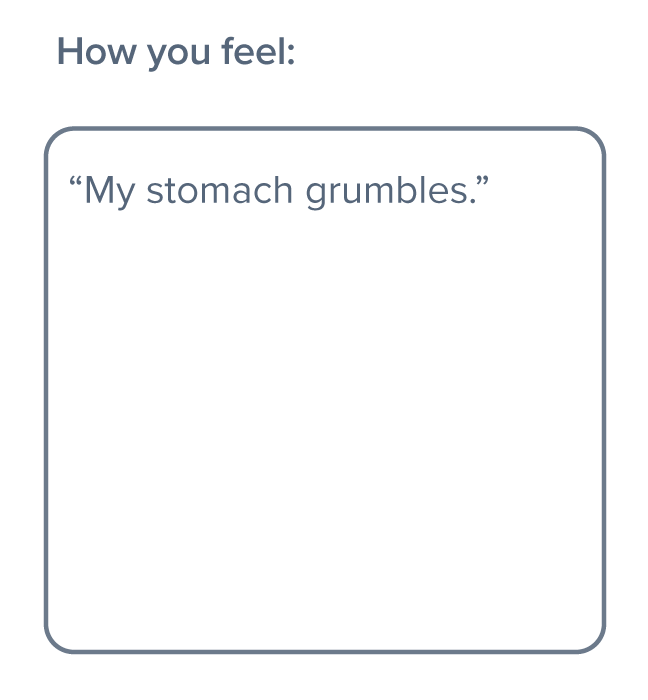Living with ulcerative colitis (UC) can be complicated. Explaining how you’re feeling in detail and what symptoms you’re experiencing can help you manage the condition.
When you have an appointment with your doctor or gastroenterologist, do you feel like you’re at a loss for words?
When you made the appointment, you probably had a clear idea of what exactly you wanted to discuss with your healthcare professional. But then, by the time the appointment rolls around, you may find it difficult to put into words what was bothering you last week or even yesterday.
When pain and discomfort resulting from UC are unnoticeable to outsiders, it can make it even more difficult to express what’s going on.
Finding the right words is often tricky, so we’re here to help.
Read about five common UC symptoms, along with suggestions for how to explain each to your healthcare professional and your friends and family so you can get the support you need.


Stomach or abdominal pain and discomfort is a
Tell your doctor or gastroenterologist your pain level and the exact location of the pain so they can develop a plan to manage the symptoms. You may need to make certain lifestyle changes, such as eating smaller meals more frequently throughout the day and avoiding a large, heavy meal in the evening.


UC ranges from mild to very severe. This classification system is primarily based on how many loose stools an individual has per day: Someone with mild UC has up to four loose tools, moderate is four to six loose stools, severe is more than six bloody, loose stools, and very severe is more than 10 loose stools.
If you’re waking up in the middle of the night to get up and use the bathroom, be clear with your provider about your situation. It’s not helpful to simply say you’re having difficulty sleeping through the night if the reason you’re waking up is to relieve yourself multiple times.
Healthcare professionals can only create a comprehensive treatment plan when they have the whole picture.


Stress appears to have a role in UC. Many say that their symptoms flare when stress is high. So while it can be useful to have a UC kit in your purse, briefcase, or car so you’re prepared, your healthcare professional is also likely to recommend ways to reduce and relieve stress.
Maybe that’s having a meditation practice, enjoying a regular exercise routine, or journaling. Authors of a blog post on the subject of stress and IBD also suggest the following:
- practicing deep belly breathing
- practicing muscle relaxation
- challenging negative thoughts
- reaching out for help


While this may seem like an insignificant detail, being specific about how UC is impacting your day-to-day is key to forming an open, honest relationship with your healthcare professionals.
Letting them know exactly how your condition is affecting you can play a role in determining which medications you’re prescribed, what sorts of activities are right for you, what foods to eat, and what foods to avoid.
In addition, fatigue is a major problem for many with UC. It may point to other related complications like anemia, so it’s in your best interest to explain the fatigue and monitor your energy levels to discuss with your provider.


Nobody should have to skip out on things they used to enjoy because of their UC. While the condition isn’t curable, it is manageable.
Telling your friends or family members about your condition may be intimidating at first, but you’ll likely feel relieved knowing that they have a sense of what you’re going through. It can also give you the opportunity to plan events that are more suitable for you and your lifestyle.
UC pain and discomfort are usually unnoticeable to outsiders, which is why it’s important to get to a place where you can clearly articulate what’s going on and how you’re feeling. This will help your healthcare professionals make decisions about your health, and it will also give your friends and family an opportunity to better support you.





